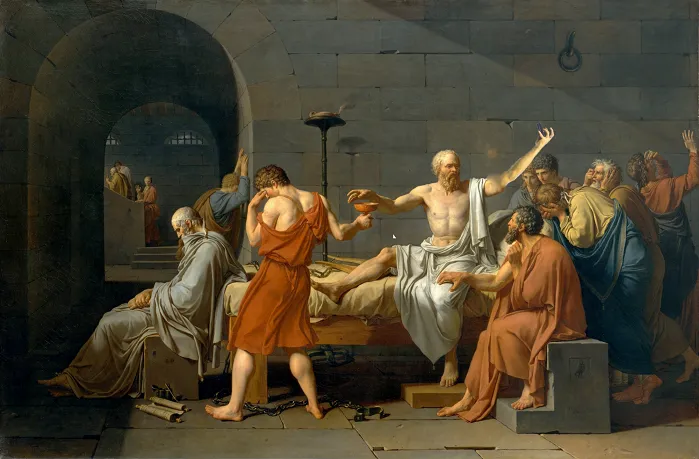Once an antique philosophy has begun, it continues to be continuously varied, following a direct or dialectically contradictory continuity from one doctrine to another. Despite the unity of the process, however, certain periods are noticeable in their development. Historians of philosophy do not fully agree in determining the number and the limits of the different periods / in the development of Greek philosophy. For example, Wendelbund divides all the ancient philosophy into two major parts:
a / Pure Greek, which he thought included the time from Thales to Aristotle including;
b/ Hellenistic-Roman, in which mixed-ethnic teachings and more basic teachings were mixed.
In purely Greek philosophy, Vindelband further distinguishes three sub-periods:
a / Cosmology to Socrates;
b / Anthropological, covering the sophistry and teachings of Socrates;
c / Systematically, who in the teachings of Plato and Aristotle unites the two current trends and presents the apogee of the whole philosophy.
In the Hellenic-Roman philosophy, Vindelband accepted two under the period:
a / The struggle of post-Aristotelian schools with their main ethical direction, science-critical skepticism and retrospective learning;
b / Eclectic Platonicism and its branching into two religious systems: Christian and New Platonic.
Hegel distinguishes three periods:
a/ From Tales to Aristotle inclusive;
b / From the death of Aristotle to the New Platonism;
c / Neo-Platonism.
There are some other divisions. However, with the widest scientific recognition, Edward Celler's division is used. He divided the Greek philosophy into three periods:
a / pre-Socratic, including sophistication;
b / the period of full blossom that includes the teachings of Socrates, Plato and Aristotle;
in the period after Aristotle's manifold philosophy.
The first period of its subject of study is characterized as cosmological: the interest is directed at studying the external nature, its origin and volume, its origin, its essence and its structure, its durability and its meaning. By his method of research philosophy during this period is dogmatic, as she confidently and enthusiastically enters the world without critically examining her human cognitive abilities. And finally, on its conclusions, this philosophy is naïve realistic, also naturophilosophical. It is only at the end of this period that the difference between the spirit and the body is realized and the rationale and the world-Anaksagor is justified. The second period is actually anthropological. It begins with Socrates, who stays away from cosmological studies, and teaches man first of all to get to know himself. Sophisticated skepticism gradually destroys the naive former self-confidence and casts doubt on all knowledge. This raises the need to put moral problems directly affecting the life and deeds of man, and the gnosiological problems affecting the possibility and the limit of knowledge.
And while Socrates still has a one-sidedness of interest, Plato and Aristotle already show the full criticism and systemicity of this period. The same physical and metaphysical, ethical and gonseological problems are considered, and special sciences are created for them. Thus, for a short time, the unsurpassed bloom of the ancient Greek philosophy, which has remained unique in fruitfulness throughout the history of mankind, is reached. During the first period, philosophy was represented by Greeks outside the metropolitan area of Maloazi, Italian and Thracian Greek colonists, and therefore remained peripheral in a sense outside the realm of Greece. In the second period, philosophy is inherent not only in exploring the inner spiritual peace of man, but also in the fact that the bearers live and develop their doctrine in the very capital of central Greece - in Athens, creating for the first time real schools of philosophy - the Academy of Plato and Aristotle's Face.
